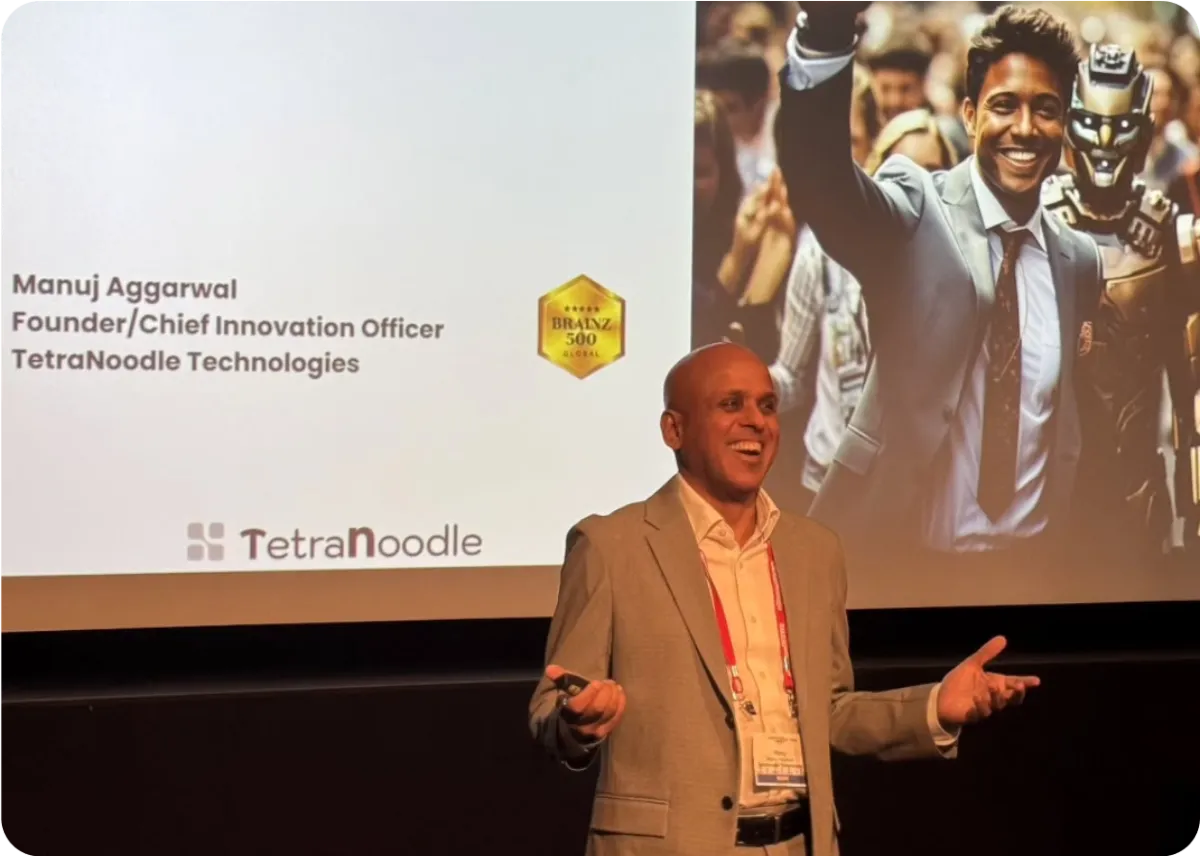I’ve Helped the biggest names in business






How I Developed the AI MERGE
AI Merge is a system for success, crafted by Manuj Aggarwal. Manuj went from humble beginnings to the boardrooms of Fortune 500 companies. He learned crucial life lessons along the way.




Why they love me


Steve Sims
THE REAL LIFE WIZARD OF OZ
“Every now and then you meet someone who really cares he is making a difference – that person is Manuj”


Terence Lewis
Bollywood Dancer and Choreographer
“Manuj is a true Leader. His AI Knowledge is extremely helpful”


Edwige Robinson
SVP, T-Mobile
“TetraNoodle has equipped us not only with knowledge but with powerful AI tools”

We all have unlimited
potential.
Everything in the world is a story that we tell ourselves and others.
AI and analytics turn you into Master communicators and storytellers.
Your Guide to Excellence
How does AI Merge Help Unleash Your Ultimate Success

Step 1: Know Thyself
Understand Your Current State
To begin your journey, we first need to deeply understand you and your psyche. We all have varied pasts, but often the stories we tell ourselves about our past are twisted in our minds.

Step 2: Grow Thyself
Envision Your Future State
Next, we’ll help you envision where you want to be by setting big, audacious goals that scare you. This is how you will realize your full potential

Step 3: Flow Thyself
Identify the Gap
With a clear understanding of your current state and future state, we then identify the gap between them.

Step 4: Show Thyself
Bridge the Gap
Finally, we help you fill the gap. This step is about understanding, deploying, and optimizing the resources needed to fill the gap, broken down into people, process, and technology.







